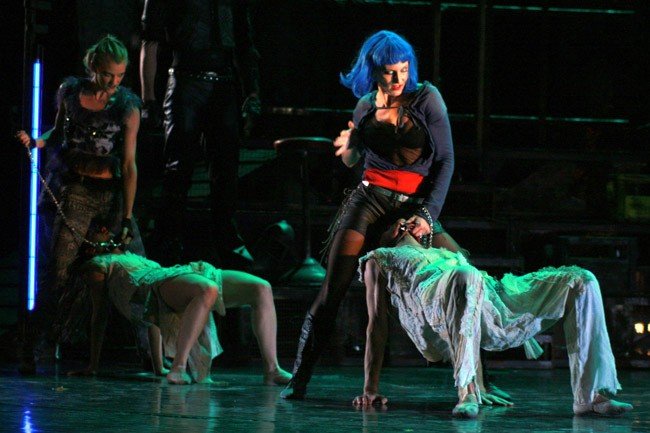Spartacus 2076

Spartacus has not been put on stage in Hungary since László Seregi made his legendary choreography at the State Opera House.
In that famous ballet starring Viktor Róna there were 80-100 dancers on stage. To create a choreography of Spartacus for a company of 20 dancers is a big challenge and quite risky. For the past two years I have been striving to attract young audiences, teenagers and university students into the theatre. Our recent grand stage pieces The Hunchback of Notre-Dame and Bonnie&Clyde were created with this mission in mind. It seems we chose the right direction: we have managed to captivate young audiences, we have almost always had full houses.
Spartacus 2076 is a two-part piece, each part 30 minutes long. We are following the concept of the past two years not only length-wise but the music is also especially written for this piece by a contemporary Hungarian composer. Ballet Pécs has always been famous for innovation. New ideas, attitudes and methods may not be accepted and respected immediately but 5-10 years later. Nevertheless I am trying to follow this tradition.
I have been thinking about a different title, but Spartacus is such a strong and well-known character that it had to be present in the title. Attractive titles are important for our audience and our audience is important to me.
The story is played in a world after a Big Bang where societies have come undone, there's no drinking water or food, people are struggling for their lives. There is a place, where old conditions and values are preserved and from where people are kidnapped and made slaves. Spartacus's riot is an evident reaction in a wild civilization like this. We have thus put the story into the world of Mad Max as you will see from the costume and stage design. I chose the subject because it is powerful: there is a strong, innocent and courageous young man, a positive personality who believes in 'Good'. He stands up against a cruel world guided by immoral people. We wrote the libretto with György Böhm. We have kept the majority of the characters and added Crassus's general. The title suggests that the story is classical, although not the same as of the well-known ballet.
Premiére: 23 November 2007 | National Theatre of Pécs, Grand Theatre
Budapest Premiére: 15 October 2008 | Palace of Arts















